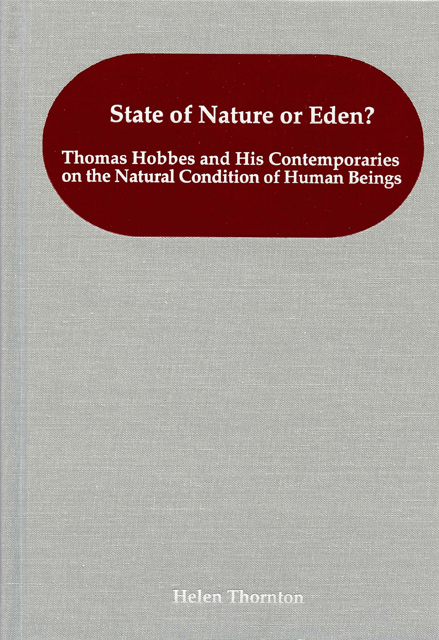 State of Nature or Eden?
State of Nature or Eden? Summary
STATE OF NATURE OR EDEN?
In one of the most famous quotations from the history of political philosophy, Thomas Hobbes described the life of human beings in the state of nature as ‘solitary, poor, nasty, brutish and short’. In this natural condition human beings lived alone in a state of: equality, constant fear of death, war, and general insecurity. It was a state in which there was no dominion, no law, and no property. If human beings were reasonable, they would soon conclude that it was a state that was incompatible with their ultimate aim to avoid death, and then they would wish to leave it. For Hobbes, the state of nature was a logical account of the origins of society, but it was also a constantly recurring possibility, because it was any period of time in which a society lacked a common power to keep order. As Edwin Curley has pointed out, this was a description of England during the 1640s. But for many of Hobbes’ contemporaries, the state of nature was understood to be a description of the pre-historic origin of society, and in this way it was also related to the Edenic condition. The problem for Hobbes’ seventeenth century readers was how to reconcile his description, of the condition of human beings before civil society came into existence, with the Biblical account of the original, perfect condition of human beings at the creation? As Sir Robert Filmer put it, Hobbes’ state of nature simply contradicted ‘the truth of the history of the creation’, while Leibniz pointed out that since Hobbes did not deny the existence of God as the ruler of the world, there could never have been such a time as the state of nature, i.e. there could never have been a time when human beings had lived without a common power.
In both the Elements of Law Natural and Politic, and De Cive, Hobbes did not claim that his state of nature had existed at a specific point in history, only that there were both past and present people who had lived, and were now living, in that condition.6 In Leviathan Hobbes admitted that the state of nature was never generally so, although again there were some people who were living in that awful state now—i.e. native Americans.
- Type
- Chapter
- Information
- State of Nature or Eden?Thomas Hobbes and his Contemporaries on the Natural Condition of Human Beings, pp. 1 - 15Publisher: Boydell & BrewerPrint publication year: 2005


